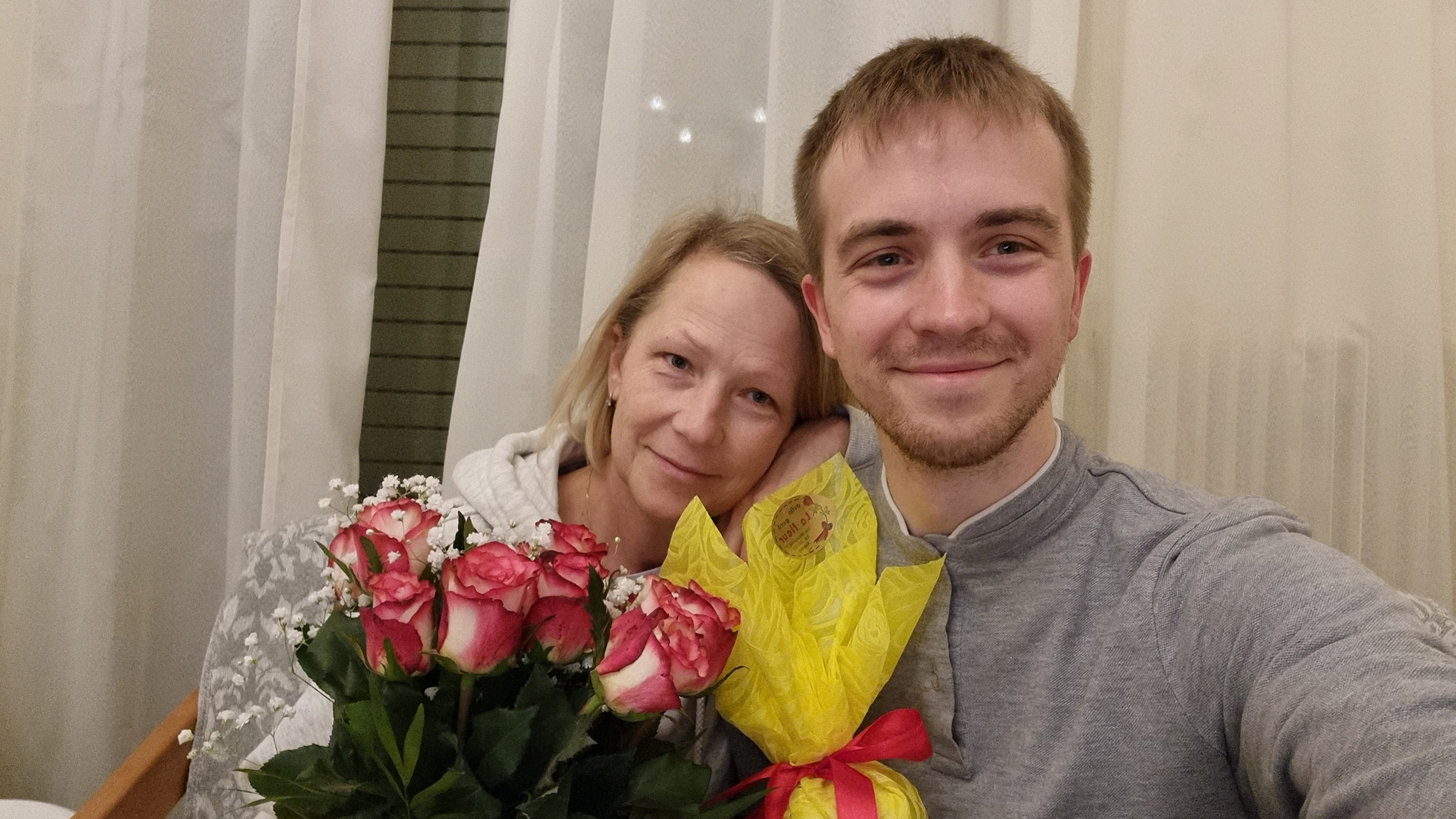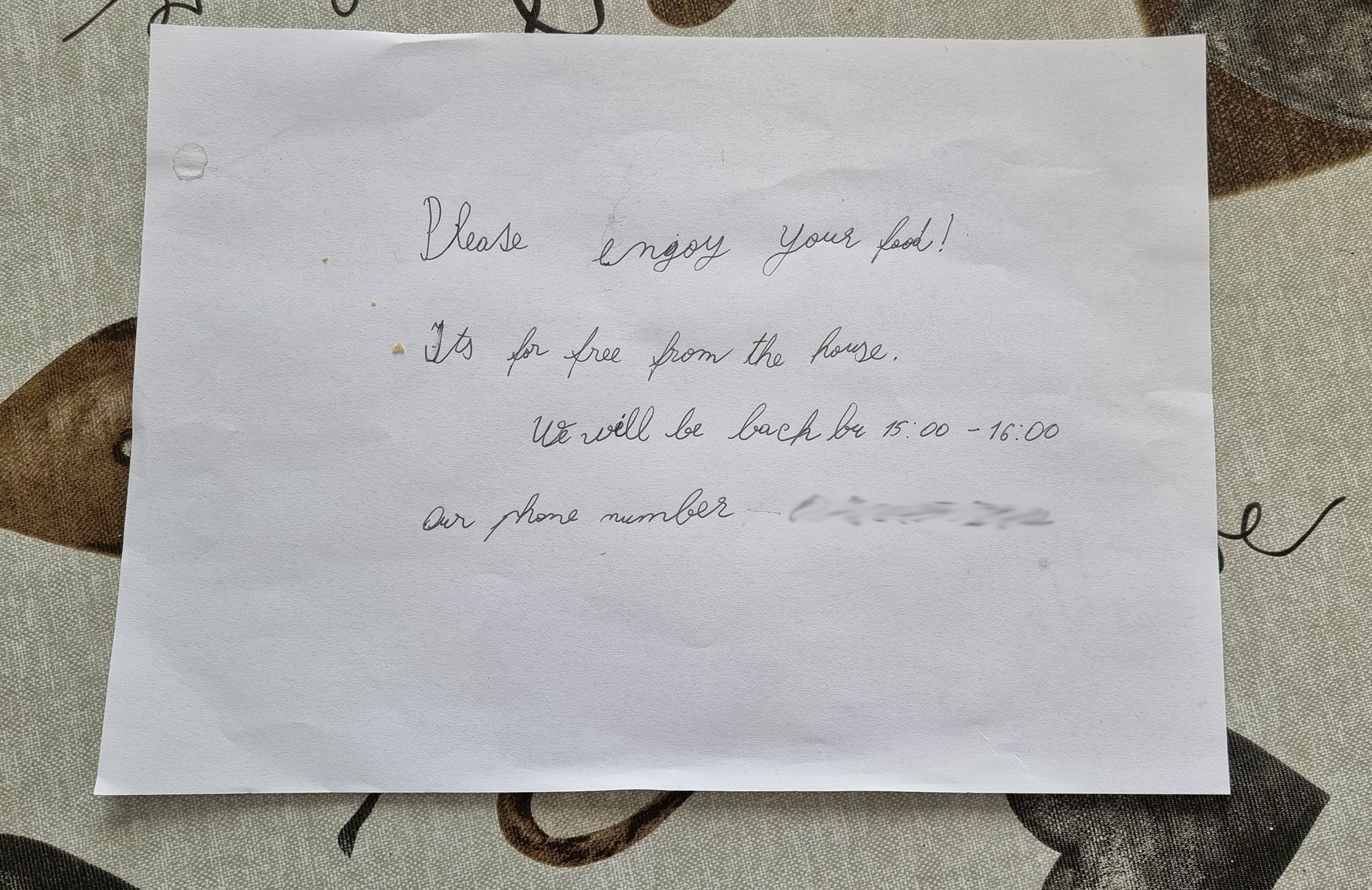
It was the middle of the night when Arthur Lavrinovich started seeing the bright flares from the windows of his apartment in Nova Kakhovka, Ukraine. He saw the orange flashes, felt the rumble of shaking foundations, saw “shining darts like shooting stars” fly over his city and erupt into pillars of smoke. He grabbed his important documents, got in his car, and picked up his mom from her home. It was 4:30 a.m. Driving as fast as 170 mph, they fled over 600 miles to the Romanian border, never stopping and crossing wheat fields to make the 14-plus-hour journey faster. Luckily, Lavrinovich had a full gas tank.
“I always thought of myself as a brave heart, as a person that laughs in the face of fear,” he says. “But we were crying the entire way to Romania, and the reason why I’m not crying now is because there are no tears left here, no emotions.” Instead, having secured an apartment with his mother in the town of Kavala, Greece, Lavrinovich is keeping close watch on the situation at home while channeling energy into his work as chief brand and development officer for a small software company based in Canada. “Now I’m working twice as hard or three times as hard as ever, because we have a responsibility,” he says. By keeping the company going, he believes he’s helping ensure that his colleagues have jobs waiting for them. “We have to work for our brothers and sisters left behind,” he says.
There are at least 200,000 software developers based in Ukraine; the country awards around 20,000 tech degrees per year according to the IT Ukraine Association, and it is one of Europe’s most popular locations for outsourcing developer work. Plus, it hosts an untold number of skilled workers like Lavrinovich who contract for foreign companies. Well before the pandemic made remote work a norm, Ukrainians—especially those in the tech sector—were contracting with global enterprises, often through freelancer-connecting platforms like Upwork or Fiverr. As Russia continues its attack on Ukrainian cities, however, many are being conscripted for military duty, while those who can are attempting to flee to safety.
Some companies that work remotely with Ukrainians are trying to help. Lavrinovich works for SmartMatchApp, which employs about a dozen Ukraine-based developers as well as Lavrinovich. The priority is getting workers and their families to safety if they can, while continuing to pay full salaries in the face of work stoppages. (Other companies have not been so kind; Lavrinovich says at least one of his friends was fired from his U.S.-based job after the conflict began.)
Read More: How Telegram Became the Digital Battlefield in the Russia-Ukraine War
An ocean and a continent away in Montreal, Canada, Lavrinovich’s boss, Tim Mourtazov, watched events unfold in late February while trying to calm his colleague over the phone during the long drive to Romania. The founder and CEO, Mourtazov had first started working with Lavrinovich via the online-work-for-hire platform Upwork in 2018, which lists many Ukraine-based remote workers. (Upwork declined to share specifics of its workers’ geographic distribution.) These days, Lavrinovich is his right-hand man. Their software helps professional matchmakers manage their customer databases, and it serves thousands of clients. “It happens to be that he’s from Ukraine. Most of our partners, and most of our developer team, are also in Ukraine,” he says. Many are in Kremenchuk, a city in central Ukraine, which—although not currently targeted by Russian attacks—has recently seen an influx of refugees from the front lines.
“Nobody can work normally. Arthur, he was the first one to escape this hell. And immediately Arthur started to call everybody asking them to leave, to take care of their families. And since then, every single day—every single day—we have been sending them money,” Mourtazov says. “We will continue to pay salaries as long as needed, and as long as we can.” SmartMatchApp is also providing extra emergency funds to workers who are attempting to leave with their families and raising money through an online fund.
Mourtazov says that “one by one” their team members or their families are relocating out of Ukraine when possible: the CTO and his family are safely in France, one designer is with her children in Italy, and one developer sent his family to Greece as well. But the remaining ten employees are subject to mandatory conscription laws, which require that men between the ages of 18 to 60 remain in the country to potentially serve the military. Lavrinovich says his colleagues are still in daily contact and as safe as can be expected—for now. “They’re scared and afraid to step outside of their homes,” Lavrinovich says, “listening to loud sirens for six hours per day, running to a shelter after each and every alert.”
Meanwhile in New Jersey, SmartMatchApp client Maria Avgitidis is doing her part to support the Ukrainian team, too. As the CEO of the dating service Agape Match, Avgitidis is a longtime SmartMatchApp user and has worked directly with Lavrinovich. She followed Lavrinovich’s harrowing WhatsApp updates as he drove to Romania and then sent him life-changing advice: head to the small seaside town of Kavala in northern Greece, a community of displaced Greeks who share many Ukrainians’ Orthodox Christian religion, where her family was also from. He and his mom would find a welcome there, she said.

They did. Lavrinovich joins a Zoom call from the apartment in Kavala where he and his mom have set up a temporary home. With his hands over his face, he describes—in painful detail—the feeling of fleeing; the bombs brightening the sky over the freeways; the way the Romanian border guards looked the other way at his incomplete documentation during their evening crossing of the Danube River. Lavrinovich knows he’s deeply fortunate: just thirty minutes after they left Ukraine, martial law requiring mandatory conscription was put into place. And now, situated in Kavala, he’s back to work, driven to keep the business functioning while his compatriots can’t. “We will have a country to rebuild after this,” he says. “We need to support everyone. It’s a responsibility. There’s no other word to describe this.”
Read More: ‘I Have No Other Choice.’ The Mothers Returning to Ukraine to Rescue Their Children
Running a business with many employees in a war zone, meanwhile, is a delicate balance of staying focused and recognizing the difficult circumstances. “I don’t know how I can go to bed knowing that our teammates are suffering,” Mourtazov says. The company has scaled back its offerings. New features and plans for the spring have been set aside.
To Avgitidis, as a client, this is not a problem. She and Mourtazov have strategized on how to troubleshoot work problems as they arise, without the usual team. This crisis has instead driven home just how tenuous life can be. “The difference between me and Arthur is luck. Right?” she says. The shared territory of their lives and luck is only growing, now that Lavrinovich is based in Kavala, where she has roots.
For Lavrinovich, his escape to safety hasn’t meant a respite from the reality back home. Instead, he feels duty-bound to keep the company solvent for the sake of his colleagues. “We keep the company running and operational, we keep this boat afloat,” he says. “And we hope for better days. Because without hope, there is no purpose.” At least, for now, he has both.
More Must-Reads from TIME
- Donald Trump Is TIME's 2024 Person of the Year
- Why We Chose Trump as Person of the Year
- Is Intermittent Fasting Good or Bad for You?
- The 100 Must-Read Books of 2024
- The 20 Best Christmas TV Episodes
- Column: If Optimism Feels Ridiculous Now, Try Hope
- The Future of Climate Action Is Trade Policy
- Merle Bombardieri Is Helping People Make the Baby Decision
Write to Raisa Bruner at raisa.bruner@time.com